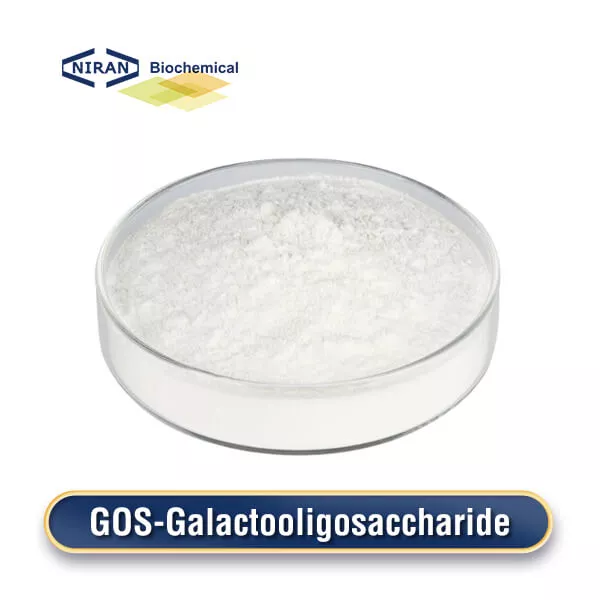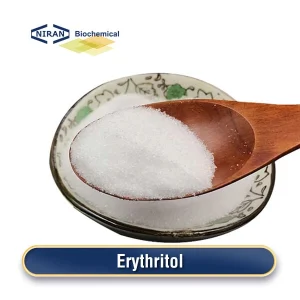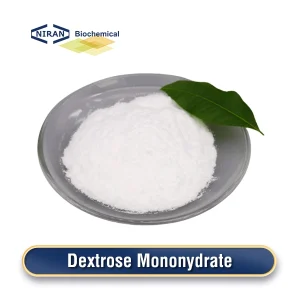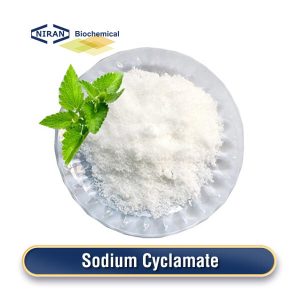What Is Galactooligosaccharide?
A useful oligosaccharide having inherent qualities is galactooligosaccharide. It is a white crystalline powder with a chemical structure consisting of one to seven galactose groups attached to glucose or galactose molecules.
There are two main preparation processes for galactooligosaccharide:
1. In the production of galacto-oligosaccharides (GOS), the enzymatic method is the main process. This method uses galactosidase to convert lactose into galacto-oligosaccharides, which has the advantages of high efficiency, good selectivity and environmental friendliness.
During the production process, lactose reacts with enzymes under specific temperature and pH conditions to generate galacto-oligosaccharides, which are then separated and purified by centrifugation, chromatography and other techniques.
This method is widely used in industrial production because it can efficiently control the purity and chain length of the product.
2. Chemical method mainly generates galacto-oligosaccharides through chemical reactions, usually involving acid-catalyzed glycosylation reactions. This method is more common in laboratory scale and specific applications, but relatively rare in industrial applications because of its complex reaction conditions and high cost.
In general, the enzyme catalysis method is the mainstream method in the production of galacto-oligosaccharides because of its mature process, high product quality and good environmental performance.
Recommended Dosage:
| Food name | Maximum usage(g/kg) |
| Functional beverages | 2-5 g/kg |
| Yogurt | 2-6 g/kg |
| Dairy products | 1-3 g/kg |
| Low-sugar beverages | 3-6 g/kg |
| Juice drinks | 3-5 g/kg |
| Sauces | 1-2 g/kg |
| Baked goods | 2-5 g/kg |
| Chocolate and candy | 1-2 g/kg |
| Fermented foods | 1-2 g/kg |
Galactooligosaccharide Has A Wide Range Of Uses
1. Prebiotic effect: Galacto-oligosaccharides act as prebiotics in the digestive tract. They prevent the spread of pathogenic bacteria while fostering the development and activity of good bacteria (such as lactobacilli and bifidobacteria). This effect helps improve the balance of intestinal microecology, support digestive health, and enhance the immune system.
2. Improve intestinal health: GOS can increase stool volume and promote intestinal peristalsis, thereby improving constipation. It produces short-chain fatty acids and encourages the growth of probiotics, both of which contribute to the maintenance of a healthy gut environment. Short-chain fatty acids improve the function of the intestinal barrier and support the integrity of the intestinal mucosa.
3. Improve mineral absorption: Research has indicated that galacto-oligosaccharides have the potential to improve the uptake of minerals like magnesium and calcium, particularly in older adults and children. This helps improve bone health and reduce the risk of osteoporosis.
4. Regulate immune function: GOS can indirectly regulate the immune system by increasing the number and activity of intestinal probiotics. It can stimulate the intestinal-related immune system (such as intestinal immune cells), improve the body’s immune response-ability, and reduce the risk of infection and inflammation.
5. Lower blood sugar and cholesterol levels: Galacto-oligosaccharides are fermented in the intestine to produce short-chain fatty acids, which can help regulate blood sugar levels and lower blood lipids. By improving insulin sensitivity and lowering cholesterol levels, GOS helps reduce the risk of diabetes and cardiovascular disease.
User Asked Question:
Q: Can humans digest Galactooligosaccharide?
A: Galactooligosaccharide (GOS) cannot be completely digested in the human digestive system due to its structural makeup, which prevents it from being completely metabolized by the digestive enzymes in the small intestine. Once in the large intestine, undigested galactooligosaccharide is fermented by the gut’s probiotics to create gas and short-chain fatty acids.
This process not only supports the health of the intestinal microbiome but also promotes normal intestinal function, and improves constipation and intestinal immune function, so galactooligosaccharide plays an important role in maintaining intestinal health as a prebiotic.




